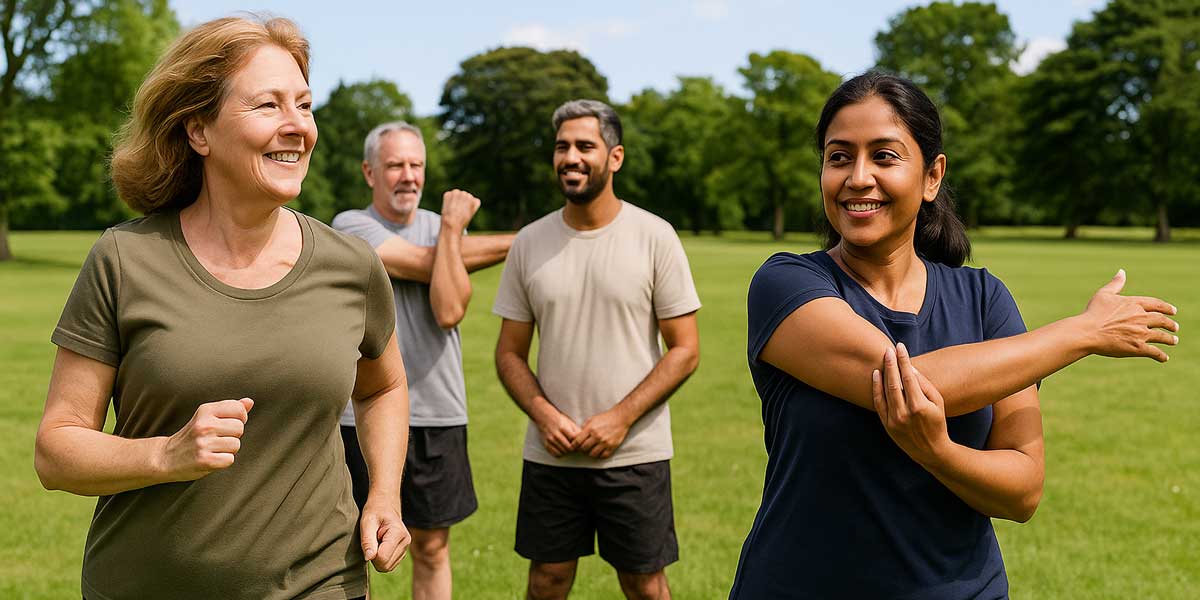Every second counts - don't second-guess it
You might not want to cause a fuss. You might think, "It's probably just gas," or "He just needs to lie down for a bit." But if you or someone close to you feels like something is seriously wrong - chest pain, shortness of breath, that crushing feeling - stop everything.
This could be a heart attack. And you may need to act fast.
In Bradford's Asian communities, many people still hesitate. Maybe it's pride. Maybe it's fear. Or maybe there's that voice in your head saying, "Don't overreact." But in these moments? Overreacting is exactly what saves lives.
Know the signs - it's not always like in the movies
A heart attack doesn't always come with dramatic chest-clutching and falling over. Sometimes the signs are quieter. Especially in women, older people, or people with diabetes. Here's what to watch for:
- Chest pain or tightness - often in the centre, sometimes spreading to arms, neck, jaw, back, or stomach
- Shortness of breath - even without chest pain
- Sweating more than usual, often cold sweat
- Feeling lightheaded or dizzy
- Nausea or vomiting
- A feeling of anxiety or dread - like something's just "not right"
If you're thinking, "It could be indigestion," or "They're just tired," ask yourself this: What if it's not? Are you willing to risk it?
What to do - step by step
Don't panic. Just act. Even if you're unsure, it's better to be safe.
- Call 999 immediately - Say you think it's a heart attack. Be clear. Don't wait to "see if it goes away."
- Help them sit down - On the floor, propped up against a wall or cushion. Keep them calm and still.
- Stay with them - Reassure them. Keep them talking if they can.
- Use CPR if they collapse and stop breathing - If you know how. 999 will guide you if not.
Don't drive them to hospital yourself unless 999 tells you to. They need proper medical help - fast, and on the way.
Cultural barriers - let's break them
In some families, there's hesitation about calling an ambulance. Maybe someone doesn't speak English confidently. Maybe there's fear of being judged. Or someone says "Let's just wait a bit."
Don't wait. Don't delay because of uncertainty or pride. The NHS won't ask about visas or money. The paramedics won't laugh. And if English isn't your strong point - still call 999. Say "heart... pain." They'll take it from there. Language shouldn't cost someone their life.

What to do after a heart attack
If you - or someone close - has already had a heart attack, this is your wake-up call. You'll need help making changes, emotionally and physically. It's a big shift. You'll need check-ups, support, maybe medication for life. That's OK. You're still here. That's what matters.
- Book regular GP check-ups and don't skip them
- Take medication exactly as prescribed - even if you feel fine
- Ask about cardiac rehab - it helps more than you'd think
- Talk to someone - mental health matters too, after something this serious
And always remember: if it happens again - call 999 again. There's no such thing as "too many times." Better to be wrong than too late.
Your quick takeaway (not the food kind)
Don't ignore it. Don't brush it off. Don't wait for someone else to decide. If there's a chance it's a heart attack - act. Fast. And if in doubt? Get checked out. Always.
